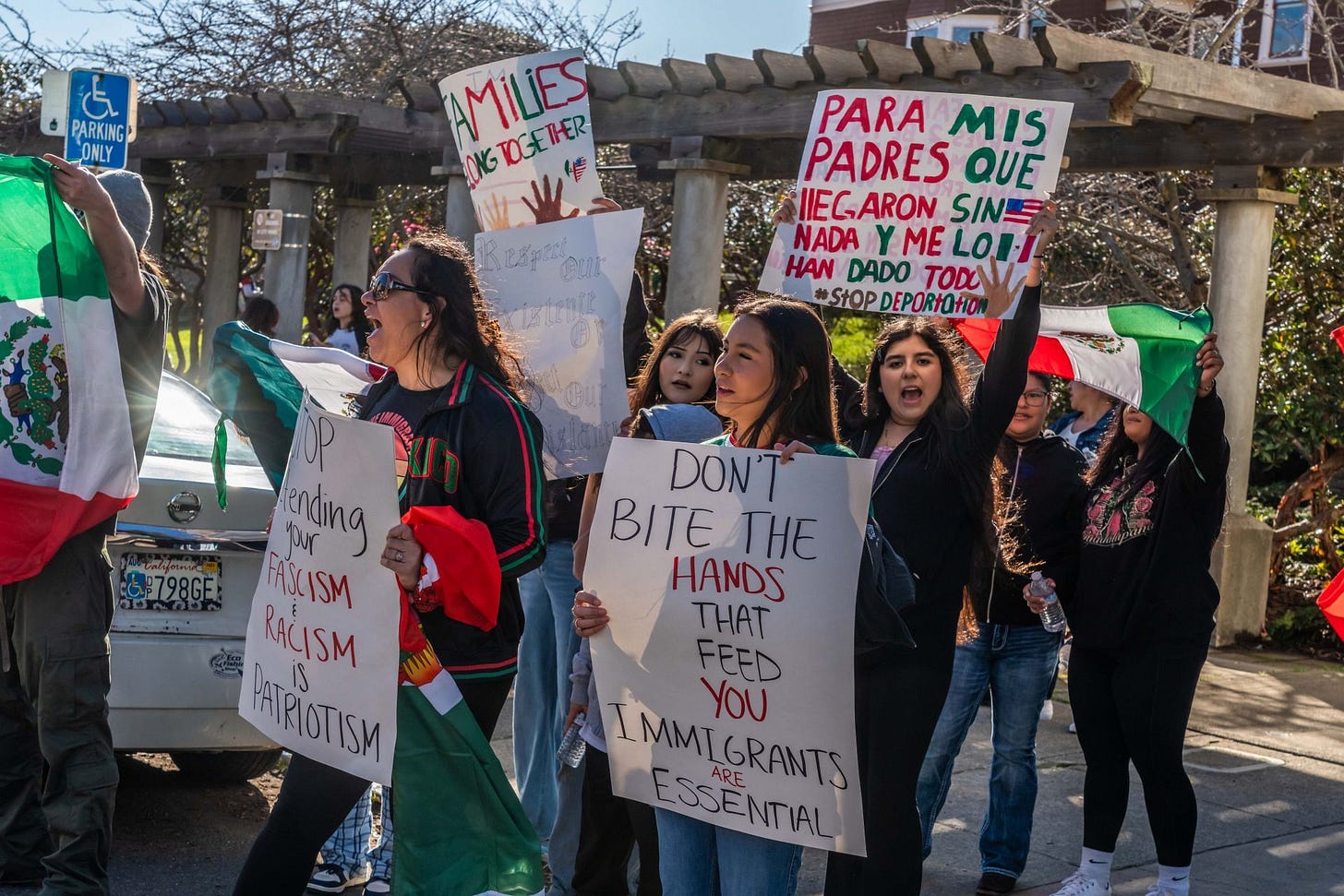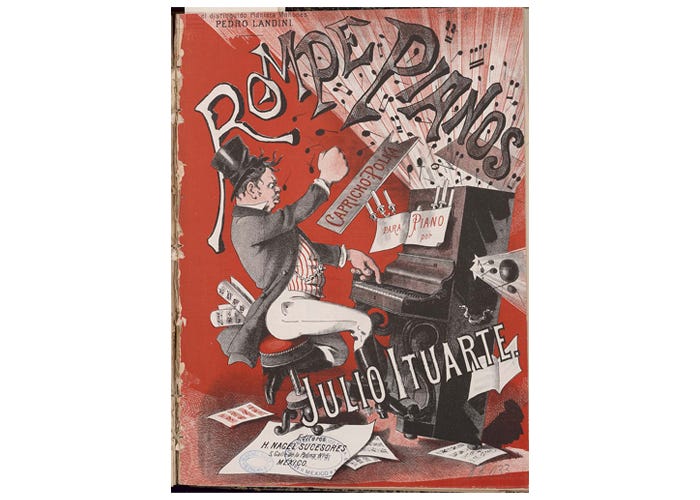23 May 25 | More Taxes, Less Justice
Also: Preserving Mexico’s musical heritage. 77 years after the Nakba, protesters march in Mexico against genocide in Gaza. In Central America, communities challenge extractive projects.
Lea La Jornada Internacional en español aquí.
After Evading the Border, Evading Taxes Will Be Easier
Political leaders in Mexico and Hispanic lawmakers in the United States expressed outrage this week in response to the advancement of a bill in the U.S. Congress that, among other things, would impose a 3.5 percent tax on all remittances sent by immigrants living in the United States. But not everyone is worried—some say that many who send remittances have ample experience in overcoming obstacles, and that after evading borders, immigration authorities, and discrimination in the U.S., they’ll also find ways to avoid unfair taxes.
Years ago, a Mexican-American comedian joked: “Why aren’t there any Mexicans on Survivor?”—the reality show where contestants are kicked off an island if they don’t succeed. “Because if we get kicked off, we know how to swim back,” he’d answer, praising the ingenuity and resilience of Mexicans around the world.
But there’s nothing funny about this tax proposal. It's just one of many measures being considered by Congress to expand the anti-immigrant offensive led by President Donald Trump and his Republican allies. “This big, beautiful bill,” Trump declared, “will ensure illegal immigrants do not receive food stamps or Medicaid, tax money undocumented immigrants send out of the country, and will permanently secure the border.” The proposed remittance tax is just one clause in a bill that spans more than a thousand pages, with its main goal being to generate revenue to fund the promised tax cuts—cuts that primarily benefit the wealthiest Americans while drastically slashing social welfare programs that working families—including immigrants—rely on.
There’s no doubt that a 3.5 percent tax on the more than $60 billion that Mexicans in the United States send home could bring Washington more than $2 billion. But, as President Claudia Sheinbaum says, “it’s very unfair.” The Mexican Senate unanimously opposed the tax, and a delegation of Mexican lawmakers traveled to Washington to speak with the U.S. Congress.
As reported by Dora Villanueva, “undocumented immigrants pay more in taxes than the wealthy in the United States and receive no services in return.” In one year, undocumented migrants in the U.S. paid $96.7 billion in taxes at all levels of government. The financial services company BBVA also reported that taxing remittances could also open the market to organized crime.
“Taxing remittances: Trumpist sadism,” summarized La Jornada in an editorial. It added that “while fiscal policy is an internal matter for Washington, Mexico can only express its strong opposition to this racist and discriminatory measure, as the federal government and all political parties represented in Congress have already done.”
In fact, there are already signs that increased border security, performative cruelty, and raids against immigrant communities are not stopping the flow of people into the U.S. The number of Mexicans who attempted to enter the U.S. without documents increased by nearly 30 percent in April, according to U.S. government statistics. The Mexican government reported that over the past eight years, the presence of women has notably increased in migratory flows—both from Mexico to the U.S. and among migrants from Central and South America passing through Mexico. One reason is that many of these women are heads of household and primary breadwinners, traveling alone in search of better job opportunities to support their families.
The Quote
I am an immigrant. My parents were refugees from Chile... Fear is the way that they win, so keep telling the stories and keep expressing yourself and keep fighting to be who you are. Fuck the people who try to make you scared... don’t let them win.
-Pedro Pascal
▶️ VIDEO
In Case You Missed It
◻️ Preserving Mexico's musical and linguistic heritage. The National Sound Archive created the website Musiteca.mx as part of an effort to preserve and democratize the country’s sound memory. This cultural heritage can be accessed for free on the site. The archive holds nearly 130 years of national audio heritage, from Mexico’s first sound recording — Llamar el agua, recorded in 1898 with the Wixárika people of Jalisco by Norwegian ethnographer Carl Lumholtz — to the Grammy awarded this year to composer Gabriela Ortiz.
◻️ A blow to Mexico’s institutions. The broad daylight murder of two key collaborators of Mexico City’s mayor is a serious blow not only to the capital’s government but also, indirectly, to the federal government and the broader Fourth Transformation movement, writes La Jornada in an editorial.
◻️ The new U.S. ambassador to Mexico has arrived. Ronald Johnson first met with leaders of the ultra right in Mexico before presenting his credentials to President Claudia Sheinbaum. The career of the retired U.S. Army colonel and former Central Intelligence Agency (CIA) officer includes combat missions in El Salvador during the 1980s and in the Balkans, in Southern Europe.
▶️ VIDEO: Johnson meets with far-right figure Eduardo Verástegui.
◻️ Protests in Mexico against the genocide in Gaza. Thousands of people demanding freedom, dignity, and rights for Palestinians marched in Mexico City to mark the 77th anniversary of the Nakba, the beginning of Israel's invasion of Palestinian territory to establish its state in 1948. “We must speak clearly. When all the deaths occur on one side, talking about war is a crime against the truth and against journalistic ethics,” writes La Jornada in an editorial.
◻️ Mexican governments collaborated with the CIA from the 1960s to 1994. Around 80,000 pages of declassified CIA documents offer the agency's perspective on its collaboration with Mexican presidents, other government officials, and intellectuals. The files reveal that during the same period, the CIA was also carrying out unilateral intelligence operations in Mexico against Cuba, the USSR, Latin American and U.S. political refugees in Mexico, and against figures of the Mexican left, including former president Lázaro Cárdenas and muralist David Alfaro Siqueiros.
◻️ Challenging the insatiable thirst of extractive projects. In El Salvador and Honduras, communities are confronting police and paramilitary forces to defend their water and territories from rapacious extractive projects, writes Manuel Pérez Rocha L. These community struggles are exemplary and have a common denominator with other places in Mexico and around the world: the insatiable thirst for profits and the reckless destruction of capitalist extractivist projects, which respect nothing and view the people as mere obstacles.
◻️ Ecuador's right wing controls all branches of government. With a narrow majority in the Assembly, President Daniel Noboa will use constitutional amendments and partial reform to dismantle the so-called Montecristi Constitution, considered one of the most advanced in rights, the environment, the popular and solidarity economy, and state institutions.










